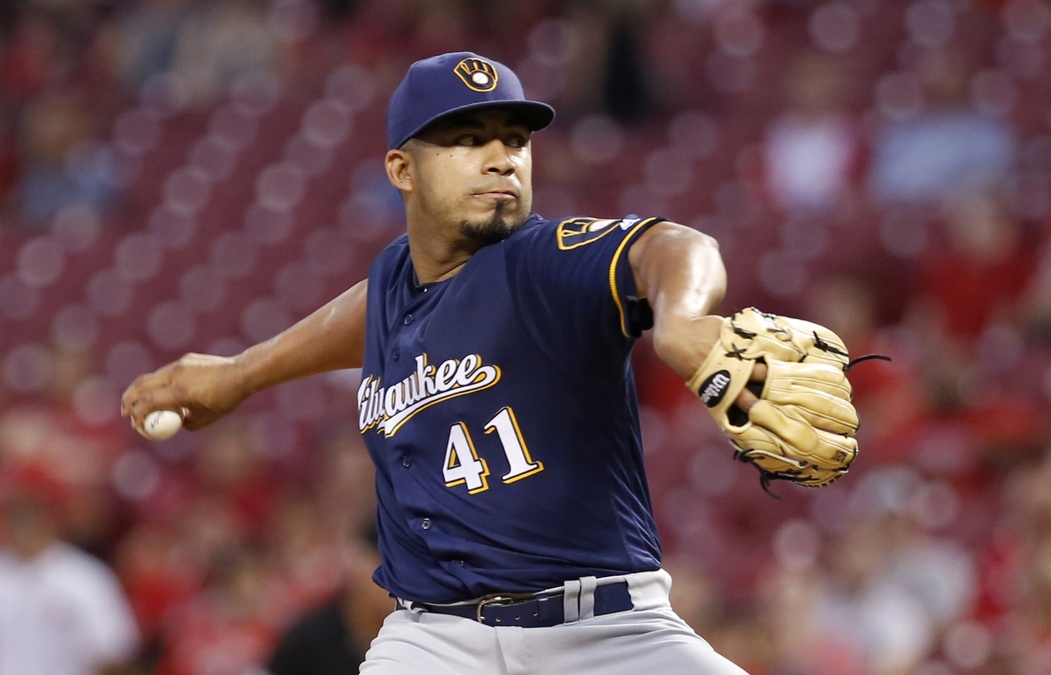While we’re reviewing players from the 2016 White Sox, and more or less just killing time and wasting our lives, why not focus on something that didn’t quite happen on the South Side in 2016?
Since the White Sox went 78-84, it would be hard for something short of a bus crash, a pestilence, everyone getting pinched for wire fraud, or the like, for any one element to claim sole fault for ruining their season, but that just means all of the smaller factors are worth exploring. To start, having James Shields be the worst starter in baseball for 114.1 innings ranks pretty high as far as disastrous contributions go.
“Contributions,” is the key word, because while the Sox scouting team certainly could have some hell to pay for their pre-trade assessments, reaching out for Shields was met with near-unanimous approval, including from us, given how small of a burden was being placed on him. With Chris Sale, Jose Quintana, Carlos Rodon and Miguel Gonzalez, the Sox just needed a fifth major league-quality guy after Mat Latos and Erik Johnson failed that test and their depth was tapped out.
Someone who could have fit that bill was 31-year-old rookie Junior Guerra, who managed to twirl 121.2 innings with a 2.81 ERA in 20 starts this past year for the Brewers, before he hit an imposed innings limit. Guerra, who had never started a major league game prior to 2016, and only started 16 of the 72 games he previously appeared in while in the minors, is only relevant because he was in the White Sox organization last season.
In fact, up until this year, Guerra was their reclamation project. They were his ticket back to affiliated ball after a seven-year absence punctuated by a PED suspension, they plucked him from Venezuelan Winter League, and they were the ones who pushed him from Double-A to a September call-up that season.
Despite being at the forefront of identifying his potential, despite burgeoning enthusiasm for his unusual arsenal and his splitter-change, Guerra still found himself available on waivers after 2015, where he was claimed by Milwaukee. For a team that rostered Matt Albers all year and found itself relying on rookies Chris Beck and Michael Ynoa in high-leverage for much of the second half, not protecting the guy who struck out 105 batters over 83.1 innings across Double and Triple-A seems like a regrettable miss. It’s when Guerra suddenly became a successful starter that things really get beyond the pale.
Guerra, a converted outfielder after the first five years of his professional career, who bounced around independent leagues and Mexican Leagues, in addition to his annual pilgrimage to Venezuelan Winter League, is the type of guy where you hope he can be built up to work his way through a major league inning.
While the stuff was electric, Guerra had no control. He was pretty much a disaster as recently as 2012, and even in 2015, he walked 29 in 63.2 innings at Triple-A Charlotte. And even after arriving in Milwaukee, he struggled in his first month in the volatile PCL. When he was called up in May, he had a 4.02 ERA and was still walking over 10 percent of opposing hitters. His success in a major league rotation was immediate and fascinating–his peripherals are a fair bit worse than a 2.81 ERA but the ability to turn over a lineup is clear–but also the kind of low-probability shot that only an openly rebuilding team with a degraded rotation like the Brewers could take.
The White Sox have not been rebuilding, and while it’s worth wondering what the Brewers were able to identify in Guerra to know he could be capable of this, the Sox are simply not positioned to give opportunities to extreme long shots like Guerra. The problem is that they are not deep enough in prospects nor cash reserves to pursue top options on the market, and instead wind up in the middle, trying to find bargains like a situation where a former top starter like Shields has had his value diminished.
In retrospect, it would have been nice to have Guerra, but it would have been a happy accident to have him in tow for 2016, and he’s the type of fringe guy that contenders teams lose all the time. It’s rare that he’s the type that a would-be contender can’t afford to lose.
Lead Image Credit: David Kohl // USA Today Sports Images
